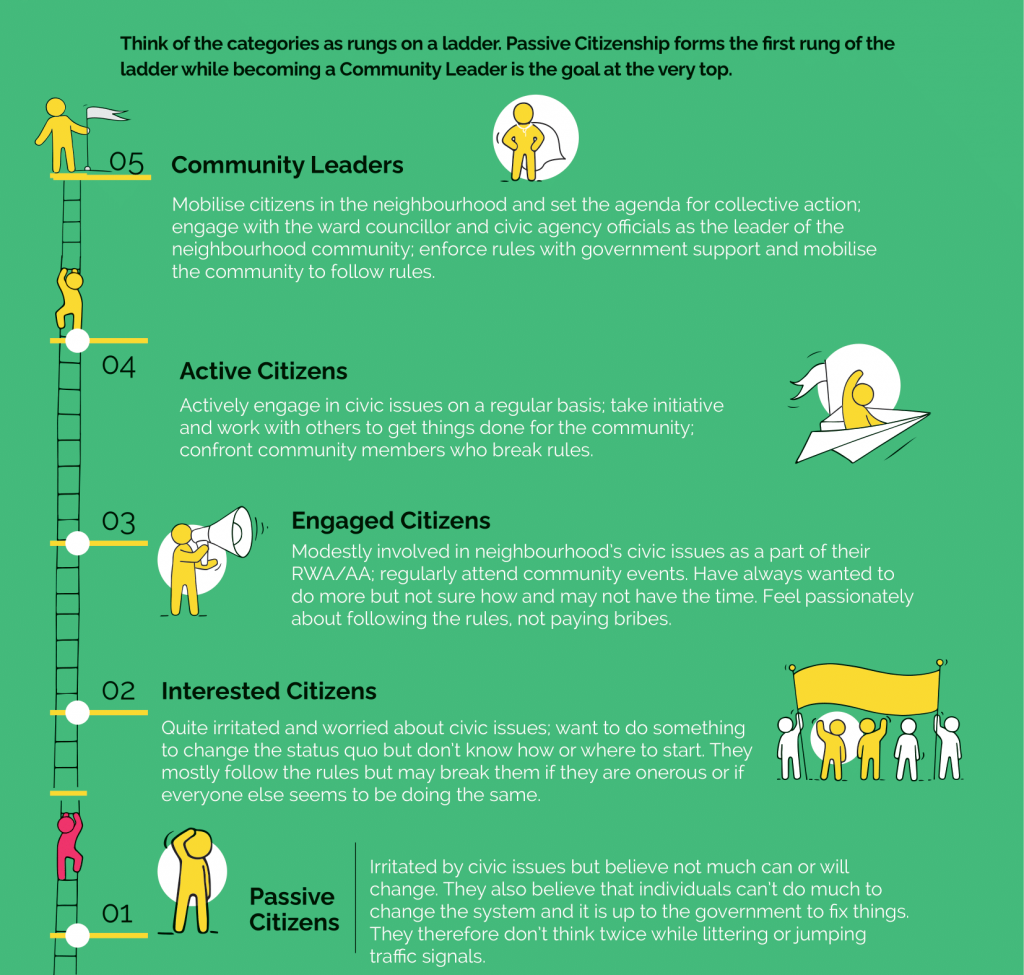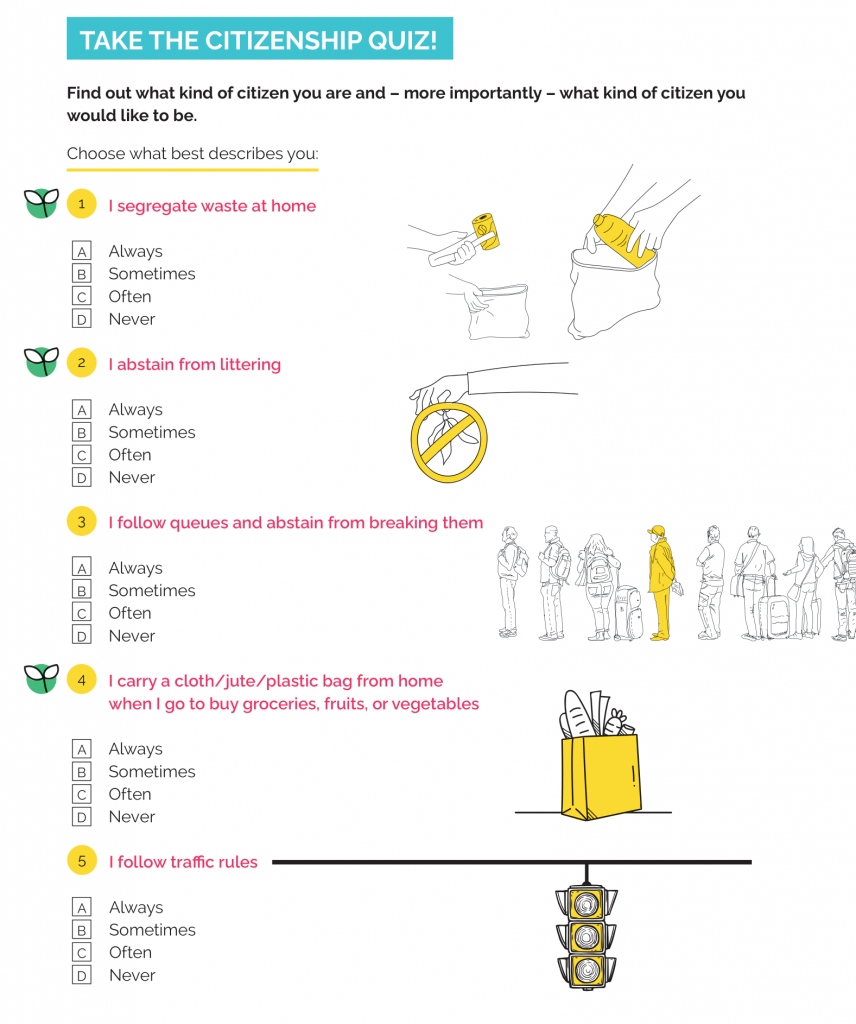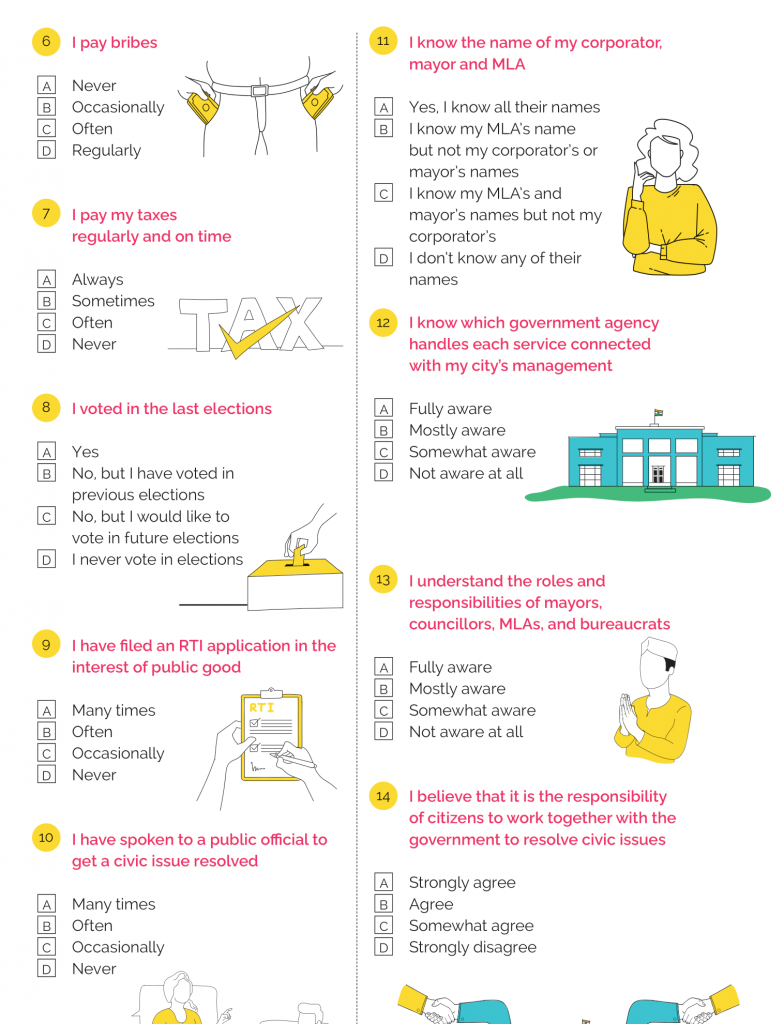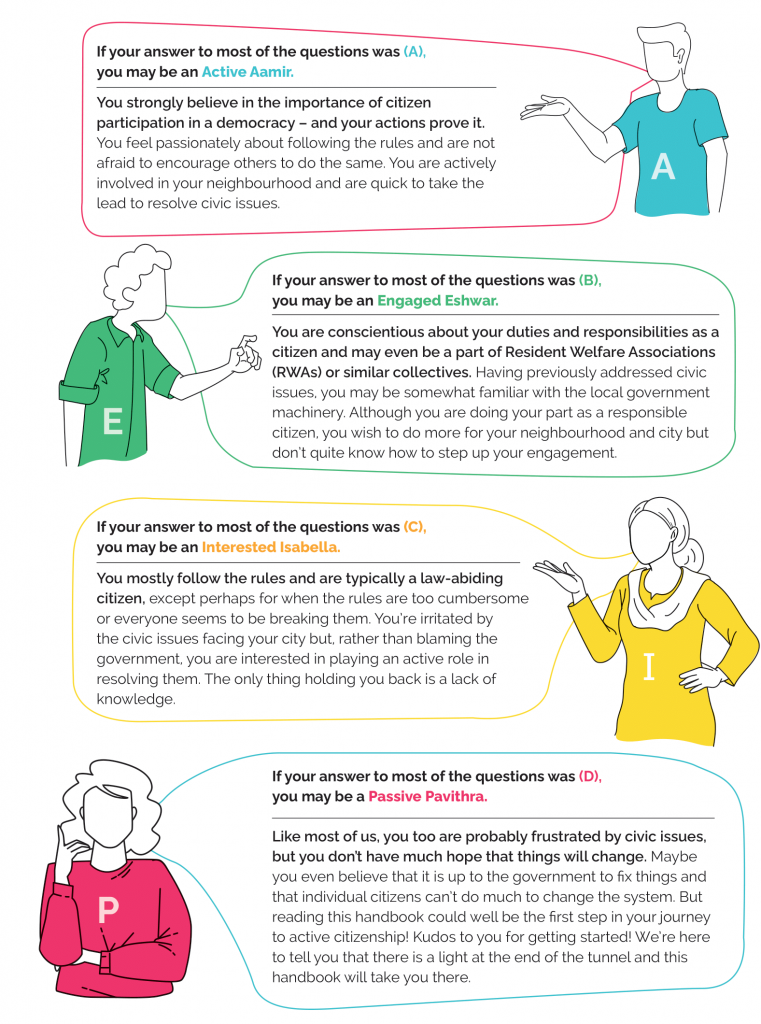We as human beings want the best possible in life for ourselves and our families. We want to play and learn well as children, be gainfully employed in a job, profession or as an entrepreneur in our youth, then possibly raise a family where we are able to provide for our parents, spouse, children and ourselves to live, play and recreate to our fullest potential. We all seek to maximise our happiness and well-being.
During this journey of life and growth, of fulfilling our dreams and aspirations, we sometimes encounter factors fully beyond our control; even if we are privileged enough to be in the middle class. Breathing clean air, being able to walk unimpeded on footpaths, feeling safe on streets and public places, seeing clean storm water drains and lakes and rivers, being able to commute by buses or metro, not having to be in traffic jams, or having parks and playgrounds to play are all beyond our control. All of these (and even more if we are not privileged enough to be in the middle class, like good public schools, public hospitals and public housing) are the responsibility of the government.
In a democracy, the government comprising the political executive (ministers), the legislature (MPs/MLAs/councillors) and bureaucrats (government officers) govern on our behalf and so ideally, we should pay our taxes and the government should provide good quality of life to us all. Is it not so?
Not so simple, particularly in India and our cities. Garbage on the streets, polluted air and groundwater, corruption in registering properties or obtaining payments for contracts, flooding during monsoons or gender discrimination are all complex challenges which governments alone cannot redress. There are 3 specific reasons why governments alone cannot deliver the ideal world to us citizens particularly in India, but increasingly in much of the democratic world:
- Governments do not have adequate people, knowledge or finances,
- These complex challenges arise from societal impulses and citizen behaviours which are not always in the control of government (government by itself comprises individuals and systems shaped by such impulses and behaviours), and
- Human development in the 21st century requires agility and responsiveness from governments which is possible only with systematic citizen participation which can provide real-time feedback, particularly in a heterogenous country like ours.
Therefore, in the alphabet of democracy, we cannot move from E (elect) to F (forget), we must stay on E (elect and engage). That IS active citizenship. Active citizenship emanates from a feeling of ownership over the neighbourhood and community where one lives and it manifests as certain specific behaviours and attitudes.
I am an active citizen when:
- I believe I am not just a citizen of India but also of the city I live in.
- I believe in democracy and the rule of law.
- I care deeply about my rights and duties, both to the government and to all my fellow citizens.
- I vote in all elections.
- I actively participate in civic matters in my neighbourhood.
- I care for and respect public spaces.
- I engage constructively with the government and fellow citizens.
- I do not litter.
- I dispose garbage responsibly.
- I follow traffic rules.
- I care for the environment and reduce wastage.
- I follow queues.
- I never pay any bribes. I pay any taxes that are due.
- I know and follow all other civic duties and obey the rule of law.
Yes, this sounds like THE perfect citizen, does it not?
Active citizenship is a journey, so do not feel discouraged! It is a journey from being a Passive Citizen to an Interested Citizen to an Engaged Citizen to an Active Citizen and finally to a Community Leader.

Passive Pavithra, Interested Isabella, Engaged Eshwar and Active Aamir can guide us on how to traverse this journey and get us to think “My City, My Responsibility”!



Are you now ready to take your next step in the journey of active citizenship? “My City My Responsibility”, Janaagraha’s handbook for active citizenship will be a worthy companion!

Mr. Srikanth Viswanathan is Chief Executive Officer of Janaagraha Centre for Citizenship and Democracy, a non-profit working towards the mission of transforming quality of life in India’s cities and towns. He also serves as Executive Director of Jana Urban Space Foundation, a sister organisation of Janaagraha working on spatial planning and design of cities.
Mr. Viswanathan is one of India’s leading practitioners of “city-systems” reforms, essentially the application of systems thinking to reform agendas in cities. He works closely with the senior leadership in union and state governments and constitutional bodies such as Comptroller and Auditor General of India and Finance Commission of India to shape and implement long-term reforms to city-systems in India. He has been an Associate member of the Institute of Chartered Accountants of India for over twenty years and worked in banking and audit before joining Janaagraha in 2011.
